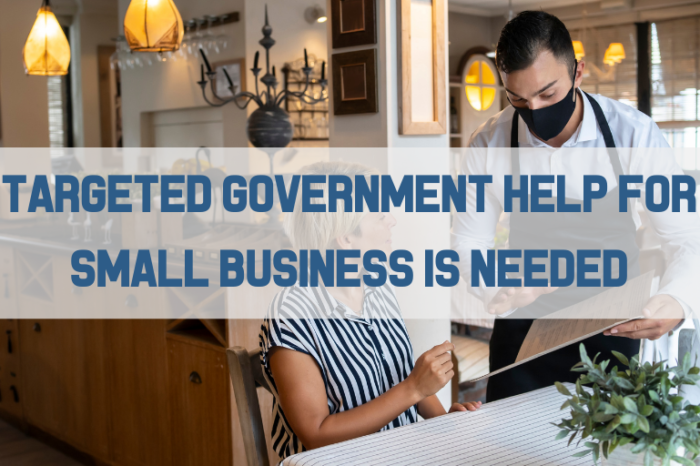Targeted government help for small business is needed
This opinion piece was originally published in the Boston Business Journal.
Covid-19 will permanently change the face of small business. Can governments help save Main Street?
Covid-19 will frame economic policy discussions for years to come, just as the Great Recession did a decade ago. The economic impact of the pandemic includes widespread job losses, and millions of Americans are at risk of falling into poverty. Covid-19 is also accelerating pre-existing market trends – such as automation and online shopping – and their potentially devastating impact on the thousands of small businesses vulnerable to these market shifts. Will these businesses be able to adapt?
Indicators of the growing prevalence of these market shifts during the pandemic have already shown up in the data. For example, e-commerce firms have seen year-over-year sales growth during this crisis, likely at the expense of smaller, “Main Street” brick-and-mortar stores.
Similarly, surveys of commuters show substantial interest in working from home even after a Covid-19 vaccine becomes available. That’s bad news for transportation and urban businesses, such as restaurants and fitness centers, that cater to office workers.
In some ways, this is a strong rationale for creating more loan programs like the Paycheck Protection Program, which aims to help businesses keep workers employed in turbulent times. However, during the Covid-19 recovery period governments should also focus on the long-term investments that businesses need to weather permanent market shifts. This approach could hasten a return to full employment and advance fairness for small, independent firms without propping up businesses that aren’t viable on their own in the long term.
Favorable tax policy for small business investments is a good place to start. Firms could benefit immensely from broader tax advantages for investments in capital, inventory, and pandemic-related equipment. Governments could also do more to help businesses renegotiate debt payments that tend to crowd out spending on capital equipment and inventory expansion.
More fundamentally, the federal government could expand broadband internet and other infrastructure, particularly as it benefits small businesses and households in rural communities. This investment is especially conducive to innovations in the agriculture industry.
Meanwhile, starting a business already comes with onerous requirements, from government fees to certification, that may be unnecessary. Delaying or reducing excise taxes, start-up costs, and permitting requirements, even temporarily, could help small businesses endure the current crisis. For workers, occupational licensing laws can also be a huge barrier to entry, especially in low-skill jobs.
Lastly, plummeting retail and office rents due to COVID-19 highlight a longstanding mismatch between land use needs of small businesses and the stock of existing commercial spaces. Providing more opportunities for small retailers to own their storefronts would likely reduce this problem. Cities can also make it easier to both build and adapt residential properties for commercial uses and vice versa. Constructing a new building is an important long-term investment in its own right, but small-scale structures with more flexible usage may prove to be more secure investments than overbuilt shopping malls.
The bottom line is that while we need targeted government relief to support small businesses during this pandemic, more comprehensive public-sector investments will increase economic resilience going forward. After some eight months of disruption to our daily lives, it’s clear that full economic recovery from Covid-19 will require governments and individual business leaders to develop a long-term strategy to re-assert Main Streets as the most viable and resilient symbols of American commerce.


